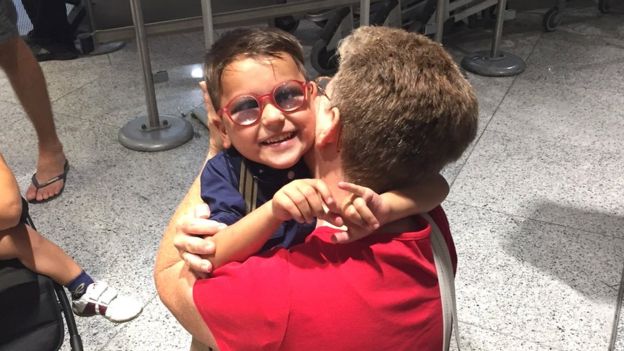When we were allowed to get our things, we were also informed that there was a possibility the camp would be reopening. They have not said when, and every time I ask, I get told: "When they run out of spaces in other camps." It's as plainly vague as you can be.
I know that all of the Greek islands are overcrowded. I have a camp that within three or four days could serve 500 people. Why aren't the refugees here?
The residents of our camp felt like "refugee" had become a dirty word. But they're refugees because they want the same things in life that you and I want. We had engineers, lawyers, teachers, musicians, artists, police officers - people from all walks of life. They were just like you and me.
I've been able to introduce many of the Greek people here to the refugees. That's the only way that we're ever going to get over the fear of refugees. I've forged some tremendous relationships that allow me to help people in ways that the large organisations just can't, because they don't have the trust.
The Greek people have opened their hearts in so many ways, but their government and the large NGOs are clueless. We had a situation last winter where we had no drinking water because the pipes were frozen. It was on a Sunday. I notified the organisation who were supposed to be in charge, and the soonest, the absolute soonest that they could get us any water in the camp was Tuesday.
I said: "You're telling me I have to make people wait 48 hours before they can have drinking water? What are we supposed to do?"
I called a local restaurateur I knew and said we needed water. In two hours, I had a truck come in. I've met incredible people here who help me fight for what's right - not just the refugees, but the Greeks too.
Most of us are hardwired to want to provide for ourselves. When your life is spent getting handouts from everyone all day, you lose your dignity. I had this wild idea that it would be great to start a business, sewing bags from leftover tent material. I tell you, those workers were the happiest people in camp because they had a purpose other than sitting there waiting for their asylum interview.
They still have that purpose today. We currently employ 18 residents. Last month, I signed the lease on a new building for Oinofyta Wares and they will be moving to the nearby community of Dilesi. We have companies and purchasers in America who want to buy these in bulk now. We are one meeting away from it being registered as a Greek business, and these guys will own it.

My father was a naval officer and my husband was in the US Coast Guard, so every two years, our family moved. Part of my life has been learning to say goodbye, which has been one of the harder things here at the camp: the constant rotation of volunteers and residents.
The hardest goodbye was to four-year-old Mustafa. He was here with his mother, sister and little brother, waiting to reunite with his father and older brother in Sweden. I knew them for about 16 months, and I grew to absolutely love that little boy. He would sit in my office and say we were both the camp managers. He was a huge personality in a little teeny body.
I was so happy for them when they got their family reunification, and so sad because I knew that the likelihood of me being able to ever see them again was pretty slim.
My own kids are all asking the same question now: "Mom, when are you coming home?"
I don't know. My volunteer visa expires 22 December, so maybe that's when I come home - because the Greek government won't let me stay any more.
I hope that my legacy here is that the people that I have touched, the refugees or the Greek people, will always remember that I cared about them. That they were special and important. That they were worthy of that care.
My husband asks me: "What are you going to do when you go home? You've been the mother to more than 2,000 people that have come through this camp."
I'm going to stand as a witness. I'm going to talk about what has happened here. I'm going to try to make people understand that we are all human beings.
Share This Post














